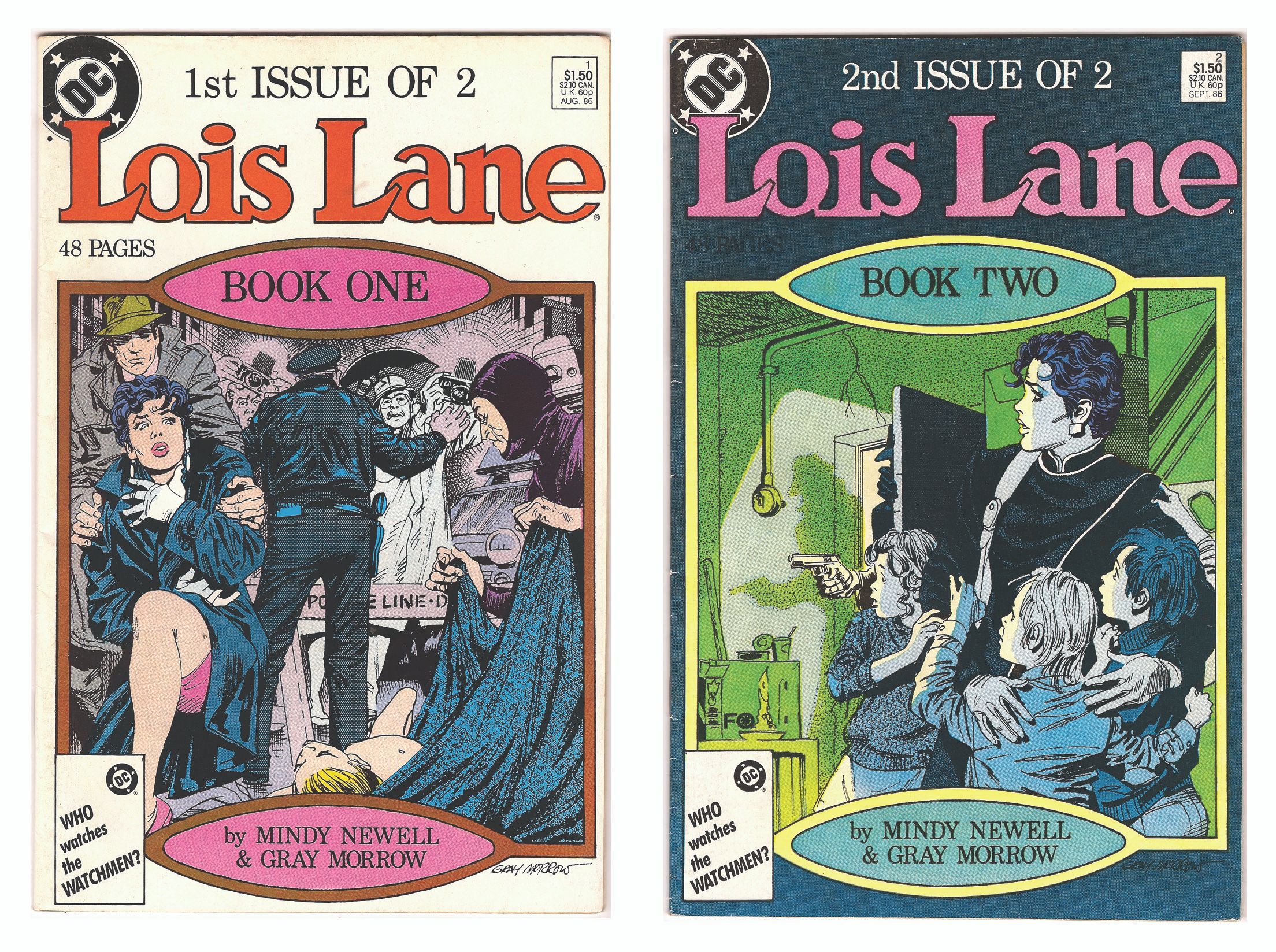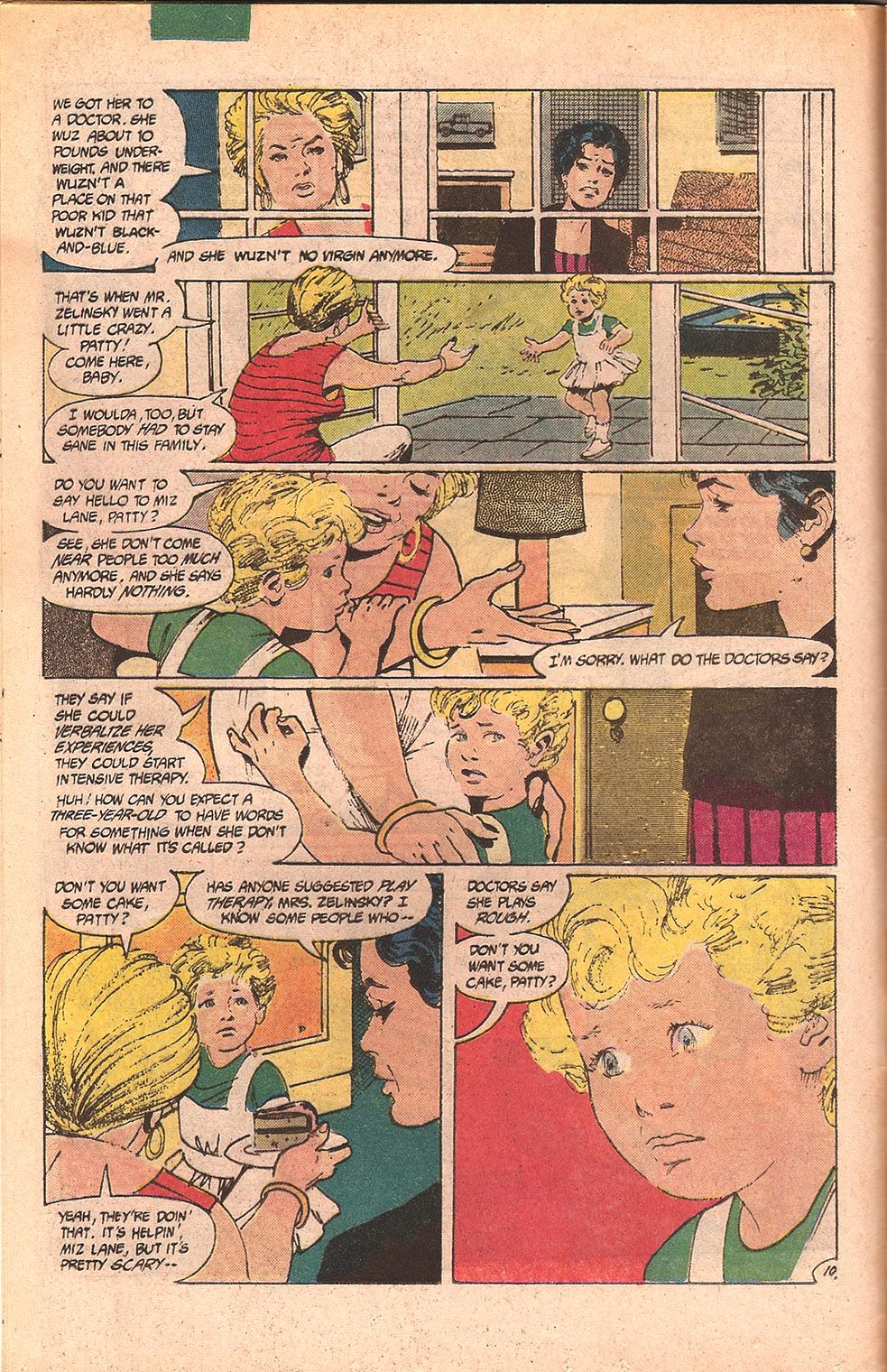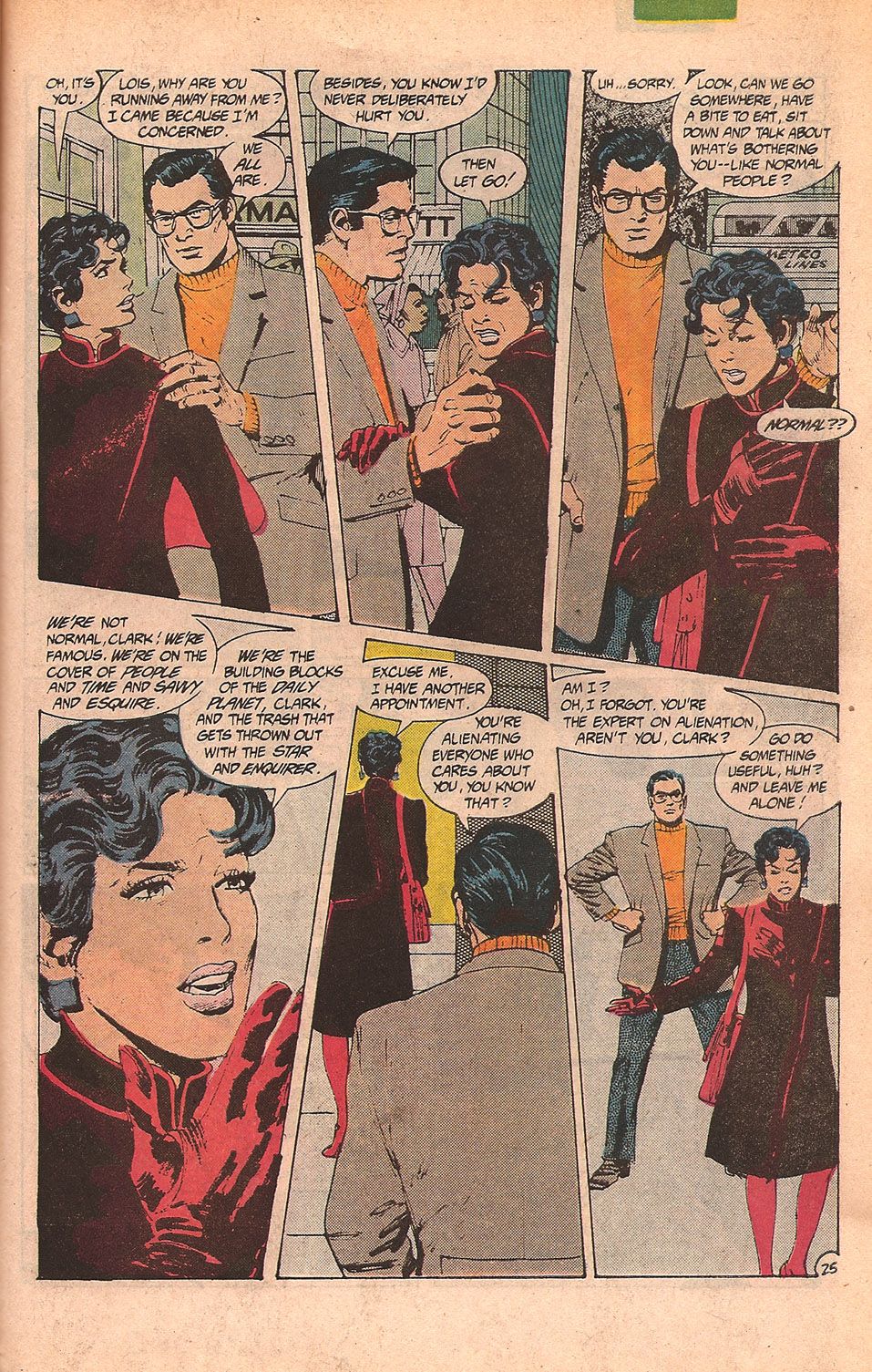It’s confession time.
I’ve never been a fan of Lois Lane.
I know…it’s pretty shameful to be all ‘go women!’ and not be a fan of one of the longest running female characters in superhero comics…even if she isn’t a superhero. But Lois just always seemed to me the ‘damsel in distress’ and the girlfriend to our star, and I suppose, perhaps particularly as a woman, I kind of naturally bristle at such a limiting role defined by others (in this case, men). However, it is only recently that I realized that I never gave Lois Lane the actual character much of a chance – rather I just decided that I didn’t love the idea of her and moved on.
Well, I wouldn’t normally rush so quickly to rectify my long term premature judgment of a fictional character, since I’ve been doing it for nearly fifteen years, there’s really no hurry to fix it, right? But there is, because I have a novel that I’m in the (hopefully) final stages of revising with an agent, and I have a character that I have long privately referred to as my ‘Lois Lane character’ – and he’s just never quite worked on the page. As I started to examine my pre-judging of Lois Lane the problem became obvious – I didn’t think much of Lois Lane, so on some level I must not think much of my character that fills the “Lois Lane” space in my novel.
So that put me on a path to learning about Lois Lane for real, and hopefully solving my two problems at once – fixing my novel and giving Lois Lane the chance she never got with me.
I decided to start with Mindy Newell’s Lois Lane Miniseries When It Rains, God Is Crying, that was recommended to me by commenter Dean in the She Has No Head! - Your Context Is Showing post comments a few weeks ago. Newell is notable for her work on Legion of Super-Heroes, Action Comics, Legionnaires, and also for being the first woman credited with writing Wonder Woman. Though her experience on Wonder Woman was short lived (you can read an exceptional interview with Gail Simone and Newell on CBR here) she was (and still is) clearly a woman well ahead of her time…and her Lois Lane miniseries further solidifies it.
I was shocked by how well these books held up more than 20 years after publication. Not that 1986 was the Stone Age or anything, but often when I read older stuff, I can’t help but cringe (what was up with exclamation points at the end of every single sentence in so many Marvel comics anyway?!). Without the nostalgia factor, I find a lot of the older stuff I read doesn’t hold up well, certainly not under a microscope for a review. However, with Newell’s story I felt it was so well done that with a few exceptions you could do the same story today with little modification.
Newell’s story follows Lois Lane as she gets involved in the case of child’s body being discovered in the East River and her subsequent realization of the massive problem of missing children in the United States (of course the problem is actually a world problem, but the story here focuses on the U.S.). The message is very after-school special, but Newell’s handling of the material is anything but. The story is nuanced and well considered as Lois digs deeper into the story – from interviewing professionals and sitting in on runaways counseling sessions to talking with parents of both still missing, and returned children – and Lois’ reaction to these emotional revelations is both obsessive and real. Lois becomes nearly maniacal about the story, pushing away her friends, family, and colleagues as she delves into the peeling onion of tragedy that she had never been aware of until now. Particularly potent, for me, is when Lois interviews the mother of a three year old that had been missing for a year and found and returned to her home. Having suffered unimaginable trauma in that year missing, it’s clear from Newell’s heartbreaking pages that the child will never be the same again in frightening ways.
To Newell’s credit she continues that realism and focus through to the end, not pulling any punches with her ending, and opting not to go for some happy Hollywood tied with a bow bullshit. There are also, in both issues, large editorials from Newell about the ongoing problem of missing children. The editorials include Newell's personal experience, as well as helpful information about what to do, signs to look out for, and how you can become involved with missing child organizations.
As for Lois Lane specifically, I’m impressed. As written by Newell, Lois is a layered complicated woman, with a hell of a lot of flaws, but they work well towards making her feel like any number of real women that exist outside of comic pages. Lois is capable and smart, but she’s not some flawless untouchable badass. Lois has of course long been well established (even for those of us that only saw her in movies and cartoons) as the ‘ace-reporter’ with a drive for success unmatched by nearly anyone else, and that portrayal is in full effect here, however Newell also shows us a Lois that has recently been taken down a notch professionally (some Mid-East interview screw up) and personally (she’s recently had a high profile break up with Superman) making her more vulnerable and as such, more defensive. She’s a Lois trying desperately to prove herself and also one that is beginning to see the cracks in her plans of all work and no play. Her dedication to her career advancement in lieu of romantic entanglements in particular is insightful and also sad – certainly a feeling many can relate to.
Newell’s portrayal of Lois a far more complicated depiction than I expected to see, and while I feel like Lois is hard to love in ways (it is a story in part about obsession and burning out), it’s also impossible to hate her as she’s infinitely relatable and sympathetic in Newell’s deft hands.
Though I’m focusing on Newell here, I should note that Gray Morrow’s art is particularly fantastic. His storytelling is excellent and superior to so much of today’s beautiful but less coherent storytelling. It’s also notable that the characters, particularly the women (as there are many featured here), all look different, and not just by their hair color. They all have different faces, hairstyles, body types, and styles unique to who they are and it’s an attention to detail that I often feel has been lost in all but the best modern comics. Morrow is also wonderfully consistent in his portrayals – Lois always looks like Lois – and that consistency allows me as a reader to relax and pay attention to what’s important, rather than struggling to figure out what is going on or who is who.
I think my only complaint is that while Lois’ increasingly fragile state of mind ratchets up nicely throughout and is paced expertly, it comes to a head (and resolves) rather quickly and not with the same attention to detail that Newell gives to the rest of the arc. The result is a rushed feeling at the end that slightly undermines the overall power of the mini-series. Additionally I had some confusion about a subplot in which Lucy Lane works with Jimmy Olson on a story that they intend to publish under Lois’ name in an effort to help her. I was never quite clear about what exactly they were trying to do, or in how it turned out. While I think that’s a bit of failing in the text, it’s certainly far less important than the heart of the story – one woman’s obsession with a new cause, and her manic attempt to solve a problem that ultimately cannot be solved – at least not by her. So on the whole, despite a little confusion, it’s an excellent work that really transcends the average comic book and leaves me intent on seeking out more of Newell's work.
The result of reading When It Rains, God Is Crying, is the realiazation that Lois, despite being a reporter (an occupation that I have a fair amount of possibly misplaced disdain for) seems like a hell of a woman. She’s far more interesting and important that I ever gave her credit for – certainly she’s well beyond just a girlfriend or frequent damsel in distress. And if half of what’s out there for Lois is half this good – well, then, I’ve been missing out.
As for my novel - exploring Lois has really helped me clarify some of the weaknesses and unexplored depths for my character in question –and I owe Ms. Newell a bit of thanks for the new evolution I hope to take him in.




